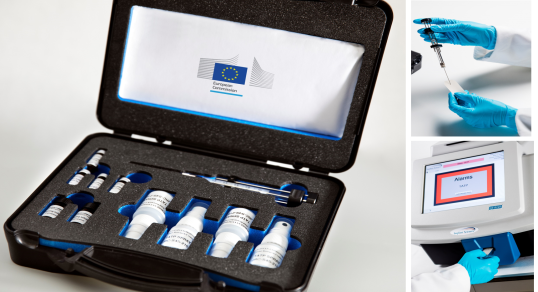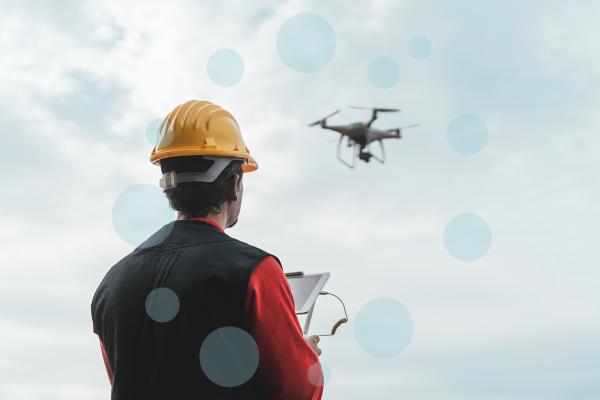- Contributes to EC priorities:
Since 2002, the European Commission has established and implemented common rules in the field of civil aviation security aimed at protecting individuals and goods from unlawful interference. The JRC supports the implementation of EU legislation on civil aviation security, primarily by developing test materials to verify the performance of screening equipment.
How are testing materials relevant for aviation security
Aviation security refers to the prevention of unlawful interference against civil aviation, such as seizure of an aircraft or placing hazardous matter on board an aircraft. With around 30,000 flights per day in Europe, millions of passengers and their luggage have to be checked for prohibited items on a daily basis.
Airports rely on detection equipment to screen individuals and goods, and it is of paramount importance that the equipment meets the required levels of performance. Reliable testing of detection equipment provides confidence that screening equipment contributes to aviation security.
How does JRC contribute
JRC applies its long-standing expertise in reliable measurements and testing to help the Commission and EU Member States to implement EU aviation security legislation. The main activities include:
- Supporting the implementation of common EU rules for aviation security through the development and provision of harmonized test methods and materials for threat detection equipment. In its dedicated laboratories, JRC develops specialised test kits and provides training to European aviation security inspectors and airports.
- Providing independent technical support and scientific advice to security stakeholders on aspects of threats, detection equipment, policy and measurement science.
- Supporting non-aviation security practitioners working with explosives and chemical detection equipment with harmonised test materials, training and scientific advice.
- Performing experimental studies on explosives, precursors and other threats in support of EU policies.
JRC also supports EU security policies in fields outside aviation security, such as law enforcement, custom and border control and the protection of public spaces.
Who are the main stakeholders
With an estimated 1 billion EU air passengers each year, the main stakeholders of JRC’s support to aviation security are citizens making use of EU civil airports. On a professional level, the stakeholders are:
-
Commission’s aviation security inspectors
-
EU Member States’ appropriate authorities
-
EFTA (European Free Trade Association) surveillance authorities
-
European airports
-
ECAC (European Civil Aviation Conference)
-
manufacturers of detection equipment


